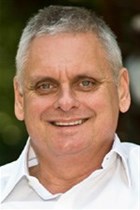It seems we have, as brand owners, marketers and agencies, increasingly fallen into a trap where we believe we "know" - even if we don't know. And whilst I am the first to question my own assumptions, there is a Liberty story that talks about the vital importance of knowing your brand essence and consistency in brand building.
Of a brand team and their agencies taking the trouble to know the heart of the brand before they make advertising for it.
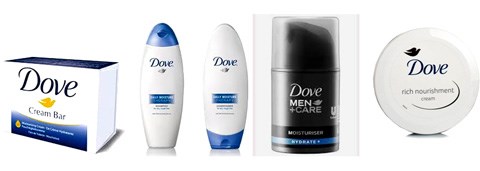
Just recently, it struck me again how Unilever retains the "essence" of their brands intact, unfailingly. All Dove marketing, for whatever the line extension may be, will focus upon its moisturising properties - a "first" for most of its categories. And whilst much of it may not be "creative" by any external standards, they are responsible. I have often believed "consistent mediocrity" in brand building may be more important than "inconsistent brilliance" - even if I hate myself for making a statement such as this as it assumes mediocrity is "OK". Yet, I do not know of any brand anywhere in the world that has only made good commercials, most make good commercials some of the time and average ones most of the time. Given that, it is better to be consistent, even if in the process, you are sometimes boring. The worst damage a weak commercial can then do is too "work" less hard than a great one. It will not damage the brand (there is anyway little evidence that "bad" advertising kills brands - bad brand experiences do).
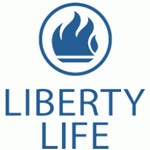
I have seen Liberty do much advertising over the last 10 years. To be honest, I can truly not remember any of it. Whilst this means nothing as I may be entirely misdirected, misinformed or simply old and out of touch, why did I then see their last ad? I am sure Liberty made some highly creative ads during this period I cannot recall, not least because they had some of the best agencies we have over the years work for them. And the work they did for Frank, their brand, is excellent, both strategically and creatively.
It is no secret that Liberty, as a company and brand, went through trying times over a number of years. This has coincided with them changing agencies at regular intervals, clearly in an attempt to find their "soul" as a brand. Yet, even when the business started to do well again, the brand was left waning.
What most people forget is that once, many years ago, Liberty was the Discovery of today. It was a highly innovative brand, driven by product innovation with many "firsts" in an industry that became, over the years, increasingly commoditised. It was the first company to offer computer assessments that calculated relevant packages based upon a serious analysis of client needs. This is whilst most of its competitors (like some of them to this day) were still selling life insurance policies.
Liberty was the category innovator and a very strong challenger brand.
When the latest commercial of Liberty came on air, I immediately - within the first five seconds - knew it was for them, something I always equate to the old notion of a "makers mark". When you do not have to wait for a logo to come-up, you have hit magic as a brand - albeit one of the most challenging things to get right as a brand owner and agency.
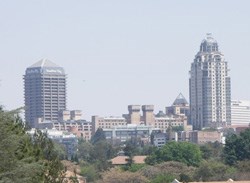
The story of the commercial is that Liberty as a company had the insight, in the early '70s, to build Sandton City. Sandown then consisted of farmland and smallholdings, many of them being large smallholdings of very wealthy South African business icons that are still household names today. Sandton was miles away from Johannesburg - at the time still the bastion of corporate South Africa. Travelling to Sandton was somewhat similar than going to Boksburg or Randfontein.
Yet, Liberty had the insight, and the "guts" to build Sandton City, at the time the most extensive shopping and office complex in South Africa, literally "in the bush". Thereby, it consolidated its leadership as a company and brand with the vision, insight, capabilities and risk profile to do the unthinkable. It was a courageous move, one that paid of handsomely to Liberty over the years. Not only did it become a highly visible landmark on the Johannesburg skyline, it was also a very good property investment. It started the "trek" to the north, as more and more large companies followed suit. Only because Liberty made the first move.
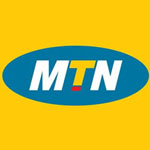
Yet, when it was done, it was a very bold move, one few corporate companies will ever have the guts to do. Yet within that, was the DNA of what makes Liberty Liberty. The essence of the brand was about a pioneering spirit that does not stand back from challenges, but takes them head-on - "to boldly go where no one has gone before". This is not dissimilar to MTN taking on Africa when everyone else was scared to do so. This is the kind of thing we will today expect from Discovery.
Today, it is history: Sandton is the icon of Africa - and one of the very few areas of South Africa that can truly be called "world class" in terms of its facilities, retail outlets and infrastructure. It has become symbolic of what Africa can achieve. It is the commercial heart of Africa in almost all respects.
And it all started because Liberty had the insight and guts to do it.

What the new commercial demonstrates is that for the first time in probably fifteen years, Liberty identified its soul as a business and as a brand - those factors that form the foundation of its authenticity. Those values that made it the icon it is today. Similar to brands like Burberry (Angela Ahrendts, CEO of Burberry, famously said that the brand is about "British-ness") and Cartier it knows what makes it different - what drives its people, products and future (one hopes it also coincides with serious internal alignment of staff to deliver "on brand" - often companies forget the potential this kind of commercial has to instil pride in people, but then they must also know the depth behind it)?
It is great to see a company and brand find its soul again. It is likely to inspire all - leadership, management, staff, clients, brokers and financial advisors. To me, it shows a company that looked at its soul to determine what made it succeed in the first place. Whether it is still the same company is off course a moot point, but one hopes - or assumes this kind of thinking would have formed part of this process.
These things do not just happen to companies and brands: they require deep insight, thinking and commitment - and many distractions along the way. But when they happen, they remind us - again - that brand management is not a "hit and miss" affair, but a serious process of review, research, investigation, insight and thinking. It is also a serious process of asking the right questions, testing the issues and options, and deciding what truly and authentically sets a brand apart from its peers. This is the right way to manage a brand. This is how brand equity is built and sustained.
The only problem is how rare it is to see a brand do this well!
Why?
